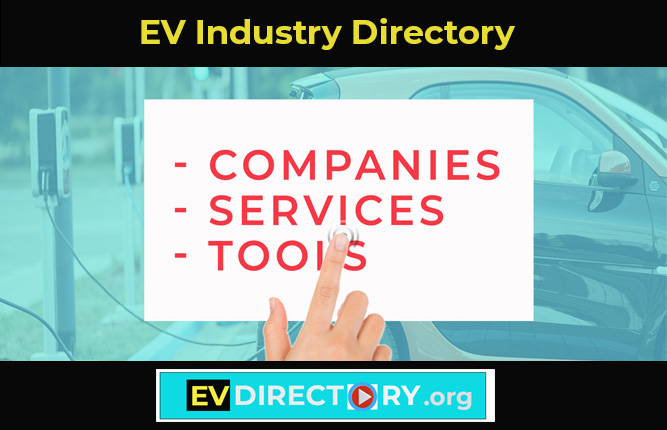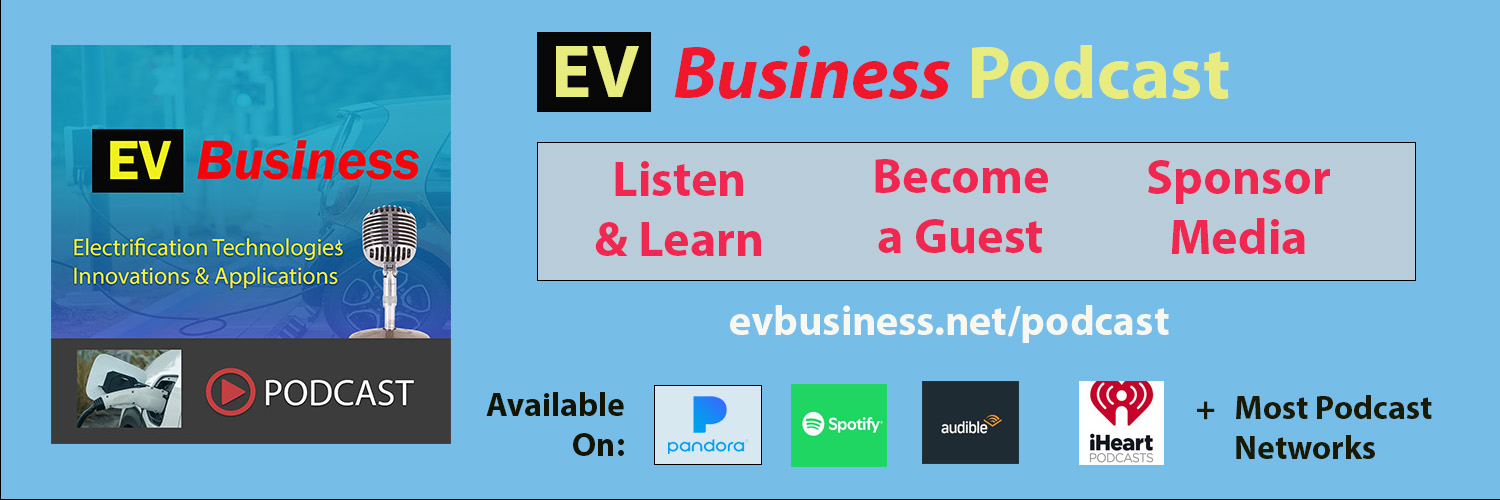EV training companies provide instruction, course content and resources to help manufacturers, system providers, and service professionals in the electric vehicle (EV) industry to select, operate, and optimize EV technologies, systems, and services. Electric vehicle (EV) training companies address the growing need for skilled professionals in the EV industry by offering specialized education and certification programs. These programs solve key challenges such as understanding evolving EV technologies, meeting compliance standards, and bridging the skills gap for maintenance, repair, and infrastructure development. With features like blended learning programs, project-based training, and live online instruction, participants benefit from flexible, hands-on learning tailored to their needs. Additional tools, such as assessment analytics, custom course creation, and resource libraries, ensure measurable outcomes and ongoing professional development. EV training companies provide invaluable expertise, making them essential for staying competitive and compliant in the rapidly evolving EV market.
Electric Vehicle – EV Training Companies List

EV Training Companies List
Advanced Vehicle Technology Group (AVTG) – Provides technical training and services for the electric vehicle and advanced transportation workforce, including EV training, first responder training, and high-voltage systems training.
Alternative Fuel Vehicle (AFV) Educate – A not-for-profit organization with a mission to develop and present classes and training on electric cars and other alternative fuel vehicles, focusing on first responders and automotive technicians.
Automotive Quest – Provides comprehensive guides and resources on electric vehicle training programs, equipping professionals with the necessary skills to navigate the complexities of EV technology.
Axle Mobility Electric Vehicle Technician Training – Offers vehicle and charger training, connecting individuals to accredited providers for certification in electric vehicle operations.
DEKRA Electric Vehicle Safety Training – Provides comprehensive EV safety training programs to equip employees with the knowledge to safely work on and around high-voltage systems.
Edureka Electric Vehicle Training Course – Offers a comprehensive program designed to equip learners with the knowledge and skills needed to understand and work with electric vehicles.
Electric Vehicle (EV) Champion Training Series by the Department of Energy – A four-part course developed by the National Renewable Energy Laboratory (NREL) and the FEMP Fleet team, designed to develop expertise in fleet electrification.
Electric Vehicle Safety Training by DEKRA – Provides training to navigate electric vehicle hazards and risks, focusing on high-voltage safety.
Electric Vehicle Skills Training by ITC Learning – Offers online courses designed to equip individuals with the knowledge and hands-on skills required in the field of electric vehicles and charging systems.
Electric Vehicle Technician Training Program – Provides a self-paced, distance education certificate program designed to train individuals in EV repair, maintenance, and manufacturing.
Electric Vehicle Training by AVI On Demand – Provides hands-on training courses covering the entire electric vehicle system, including diagnostics and safety procedures.
Environmental Motorworks Inc. – A leading provider of automotive electric vehicle training and diagnostic equipment, focusing on hybrid and electric vehicles with an emphasis on hands-on, real-world experience.
evACAD Electric Vehicle Training Courses – Offers electric vehicle training courses and industry-valued certifications for engineers, focusing on e-Mobility.
EVPro+ Electrified Transportation Training & Certification – Provides standardized training and certification programs for professionals working with Battery Electric Vehicles (BEV), Plug-In Hybrid Electric Vehicles (PHEV), and Hybrid Electric Vehicles (HEV).
ITC Learning Electric Vehicle Skills Training – Offers online EV skills training courses designed to equip individuals with the knowledge and hands-on skills required to excel in the field of electric vehicles and charging systems.
Legacy EV Technician Program – Provides virtual and in-person training for individuals looking to enhance their knowledge of electric vehicles, aiming to power the workforce of the future.
The VoltEdge Training Station – Dedicated to empowering engineers with cutting-edge EV training, offering both online and offline programs tailored to the rapidly evolving EV industry.
Universal Technical Institute (UTI) – Provides electric vehicle mechanic training programs, incorporating EV technology into their core automotive program and offering advanced training through manufacturer-specific programs.
Wake Technical Community College – Offers electric vehicle training as part of its degree programs, providing state-of-the-art EV service and diagnostic equipment and professional development for faculty.
EV Training Company Key Features and Capabilities
Assessment and Analytics
Tools to track and measure progress and performance are offered, alongside regular assessments to evaluate understanding and retention. Analytics help identify areas for improvement and further development. This capability is important because it provides measurable outcomes and helps tailor the learning experience to individual needs.
Blended Learning Programs
These programs combine online and in-person training sessions, providing flexibility for participants to choose learning modes that suit their schedules and preferences. The learning experience is enhanced through multiple formats, which is important as it accommodates diverse learning styles and maximizes engagement.
Certificates and Professional Certification
Courses offer certification upon completion, providing recognized credentials to validate participants’ skills and knowledge. Pathways to advanced certifications and continuing education credits are also available. This feature is essential as it formally acknowledges the learner’s expertise and can enhance their professional credibility.
Compliance and Regulatory Training
Courses on industry regulations and compliance standards are offered to ensure that companies adhere to legal requirements. Training covers data privacy, security, and intellectual property laws. This is important because compliance is critical to avoid legal issues and maintain industry standards.
Continuous Learning and Updates
Participants have access to updated course materials reflecting the latest industry trends and ongoing learning opportunities to keep their skills current. Membership to learning communities and forums is also included. Continuous learning is crucial as it ensures that professionals stay informed about the latest developments and innovations.
Corporate Training Programs
These programs include group training sessions for corporate teams, on-site training options for large organizations, and programs designed to improve team collaboration and efficiency. Corporate training is important because it can be tailored to the specific needs of the organization, enhancing overall productivity and team performance.
Custom Course Creation
Training programs are tailored to meet specific client needs, with in-depth consultation to align course content with business objectives. Customizable modules focus on particular technologies or business strategies. This capability is important because it ensures that the training is relevant and directly applicable to the company’s goals.
Industry Expert Instructors
Courses are led by professionals with extensive experience in EV systems and services, offering insightful case studies and real-world examples. Networking opportunities with industry leaders are also provided. This is important as it ensures high-quality instruction and valuable industry insights.
Live Online Instruction
Real-time classes are conducted via video conferencing platforms, with interactive sessions including live Q&A and virtual labs for hands-on experience. Live instruction is important because it allows for immediate feedback and a dynamic learning environment.
Online Courses
Pre-recorded video lessons available on-demand, allowing flexible learning schedules for participants to progress at their own pace. Supplementary materials such as readings, quizzes, and assignments are included. Online courses are vital for providing access to training at any time, accommodating busy schedules.
Practical Project-Based Learning
Hands-on projects and real-world applications are included, with simulated environments to practice new skills. Collaboration on group projects fosters teamwork and problem-solving. This is important because it provides practical experience and enhances the application of theoretical knowledge.
Resource Libraries
Access to a wealth of digital resources, including e-books, whitepapers, and case studies, is provided. Continuous updates with the latest industry information and trends, along with tools and templates, aid in the practical application of knowledge. This capability is important for providing comprehensive resources that support ongoing learning.
Technical Support and Mentoring
Participants have access to instructors and mentors for additional guidance, support forums, and discussion groups. Personalized feedback on assignments and projects is also offered. This support is crucial for ensuring that learners can overcome challenges and fully understand the material.
Webinars and Seminars
Topic-specific sessions are led by industry experts, featuring discussions on current trends, best practices, and innovative solutions. Q&A segments address participant queries. This service is important for staying updated with industry developments and engaging with experts.
EV Training Glossary
- Advanced Driver Assistance Systems (ADAS) – Technologies in vehicles that enhance safety and driving ease, such as lane-keeping assistance and adaptive cruise control.
- Battery Electric Vehicle (BEV) – An electric vehicle powered solely by electricity stored in batteries, with no internal combustion engine.
- Battery Management System (BMS) – A system responsible for monitoring and controlling the charging and discharging of an EV’s battery to ensure safety and efficiency.
- Charging Management System (CMS) – Software and hardware that manage EV charging stations, including scheduling, energy optimization, and user interfaces.
- Continuing Professional Development (CPD) – Ongoing learning activities undertaken by professionals to develop and enhance their skills.
- Direct Current Fast Charging (DCFC) – A method of rapidly charging EVs using direct current, significantly reducing charge times compared to alternating current methods.
- Electric Vehicle (EV) – A vehicle powered by one or more electric motors using energy stored in batteries.
- Energy Management System (EMS) – A system designed to monitor and optimize energy consumption within EV charging networks or other facilities.
- Fleet Management System (FMS) – Software and tools used to oversee, maintain, and optimize fleets of EVs, including performance tracking and maintenance schedules.
- High Voltage System (HVS) – The electrical architecture in an EV that includes components such as the battery pack, inverter, and electric motor.
- Hybrid Electric Vehicle (HEV) – A vehicle that combines an internal combustion engine with an electric motor for improved fuel efficiency.
- In-Vehicle Infotainment (IVI) – Systems in an EV that provide entertainment and information, including navigation, music, and app integration.
- Level 2 Charging (L2C) – A commonly used EV charging standard that provides faster charging than Level 1 but slower than DC fast charging.
- Original Equipment Manufacturer (OEM) – A company that produces components or systems used in the manufacturing of EVs.
- Plug-in Hybrid Electric Vehicle (PHEV) – A hybrid vehicle with a larger battery that can be recharged via an external power source, allowing for extended electric-only driving.
- Predictive Maintenance (PdM) – A maintenance strategy that uses data and analytics to predict and address issues before they cause failures.
- Renewable Energy Integration (REI) – The process of connecting renewable energy sources, like solar or wind, to EV charging infrastructure.
- State of Charge (SOC) – The current charge level of an EV battery, usually expressed as a percentage.
- Total Cost of Ownership (TCO) – The overall cost of owning an EV, including purchase price, maintenance, charging, and depreciation.
- Vehicle-to-Grid (V2G) – A technology that allows EVs to send unused electricity back to the grid.
- Vehicle Diagnostics and Repair (VDR) – The process of identifying and addressing issues within an EV’s mechanical or electronic systems.

